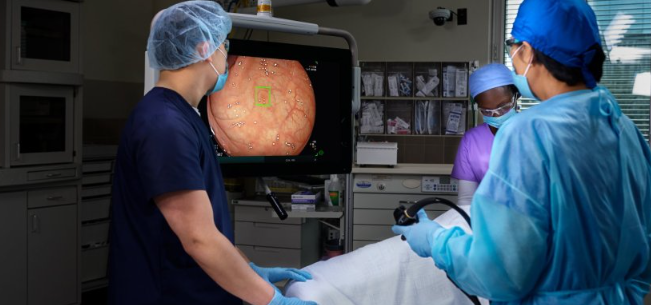Photo Credit: Romaset
The Following is a summary of “Colon Cancer Screening, Surveillance, and Treatment: Novel Ai Driving Strategies in the Management of Colon Lessions,” Published in the March 2025 Issue of Gastroenterology by Hassan et al.
The Integration of Artificial Intelligence (AI) Into Colonoscopy has significantly transformed the detection and management of colorectal polyps, primarily through compter-aided detection (cade) and computer aided diagnosis (CADX) Systems. These ai-Driven Technologies Enhance Real-Time Polyp Identification and Characterization, Reducing Inter-Operator Variatability and Standardizing Colonoscopic Quality Across Different Levels of Expertise. Cade has demonstrated its effectiveness in improving adenoma detection rates, which is critical for reducing the long-term incidence of colorectal cancer. However, Propact These Advantages, Cade Implementation Presents Right Challenges, Including Prolonged Proceure Times, an Increase in Non-Neoplastic Polyp Resections, and a Heightened Surveillance Burden. On the other hand, cadx shows promise in distinguishing neoplastic from non-nonoplastic diminutive polyps, aiding in decision-making regardinging polyp resection. Nevertheless, Its Diagnostic Accuracy Remains Limited, Particularly for Lesions in the Proximal Colon, Where Misclassification Rates Are Higher. ADDITIONALLY, REAL-WORLD Data Reveal a disparity Between the effectiveness observed in controlled trials and practical outcomes in diverse clinical settings, Underscoring the Need for Further Validation Studies in Broader Patients Population.
Another Critical Limitation of Cadx is its binary classification output and subptutel Specity, Which May Reduce Clinical Confidence in Its Recommendations. The Implementation of Explainable Ai Models Could Play A Pivotal Role in Increasing Physician Trust and Facilitating the Seamless Integration of These Technologies Into Routine Endoscopic Practice. This review Comprehensive Evaluates The Clinical Benefits, Limitations, and Potential Risks Associated with Ai Applications in Colorectal Cancer Screening, Surveillance, and Therapeutic Decision-Making. SPECIAL EMPHASIS IS PLACED ON THE ROLE OF CADE AND CADX SYSTEMS IN POLYP DETECTION AND CHARACTERIZATION, ALONG WITH THE EXISTING CHALLENGES IN TRANSLATING AI INNOVATIONS INTO WIDESPREAD CLINICAL ADOPTION. Further Advancements in Ai-Driven Colonoscopy Must Address Current Limitations through Improved interpretation, Enhanced Specity, and Prospective Validation in Real-World Practice to Optimize Path Outcomes and Streamline Colorectal Cancer Prevention Strategies.
Source: gastrojournal.org/article/s0016-5085(25)00478-0/abstract



